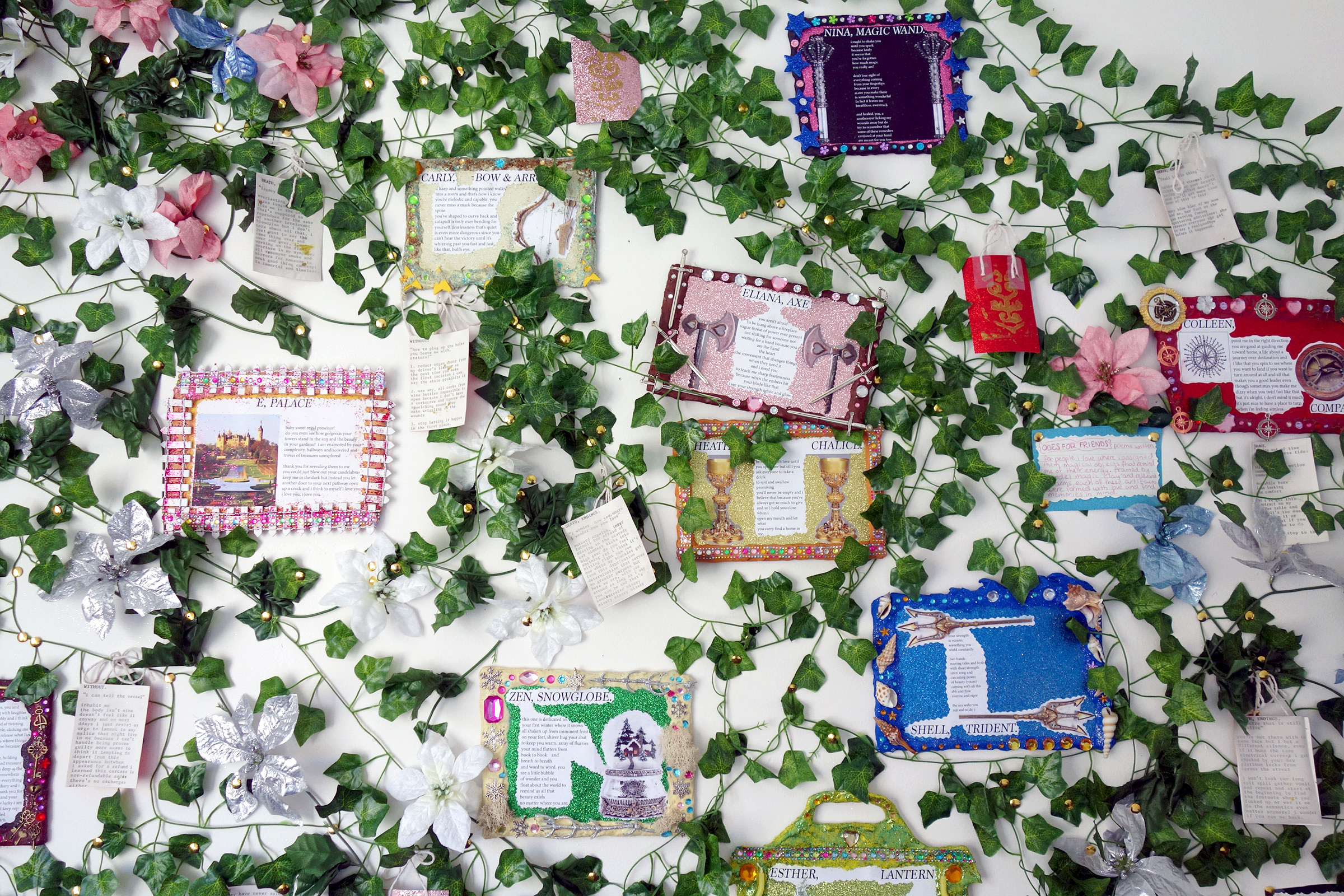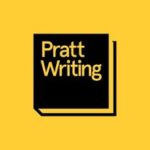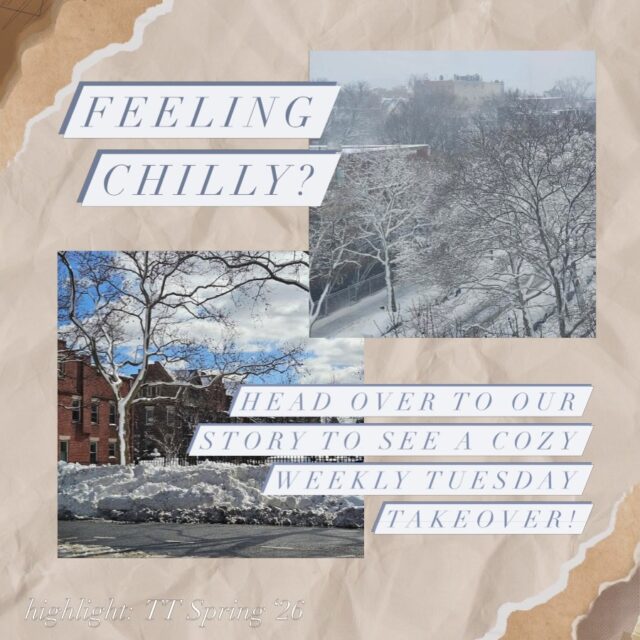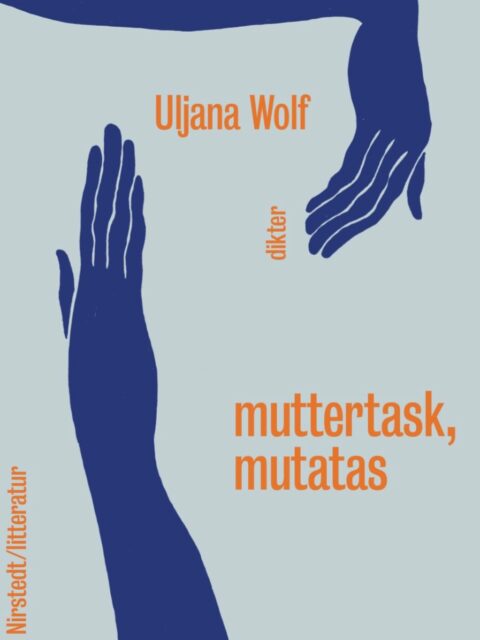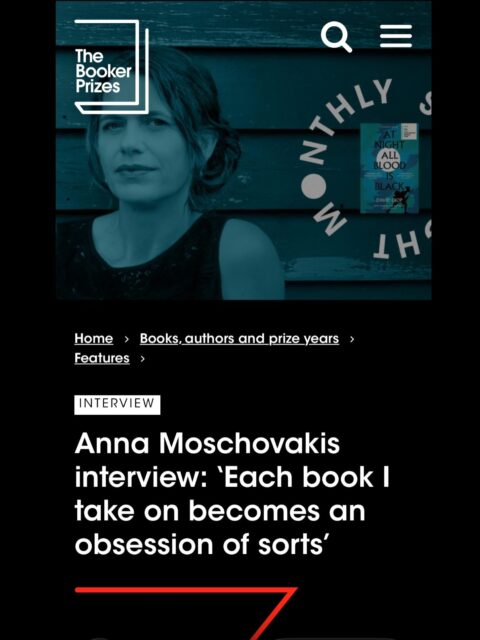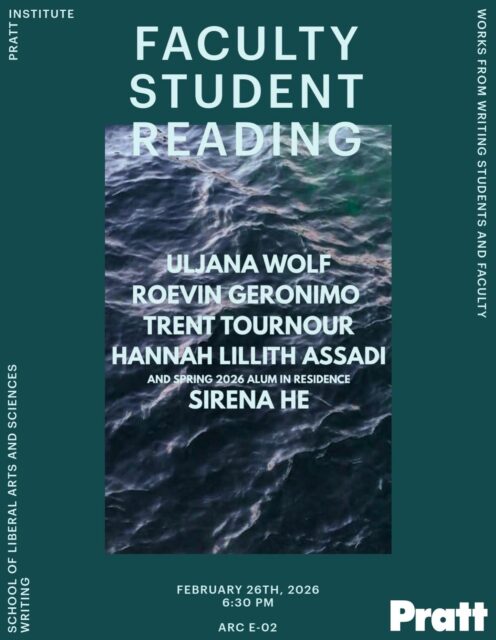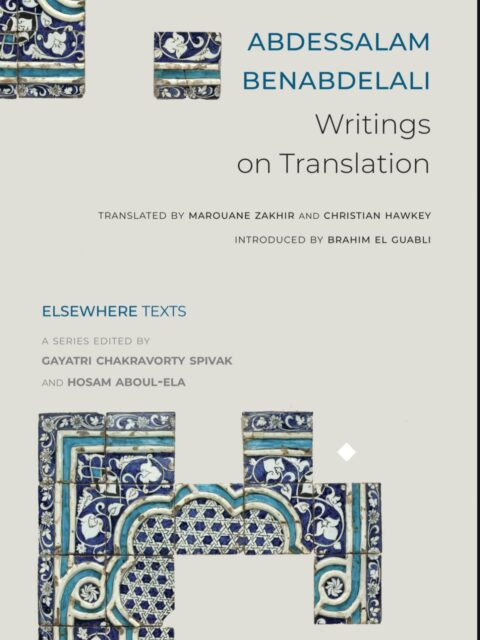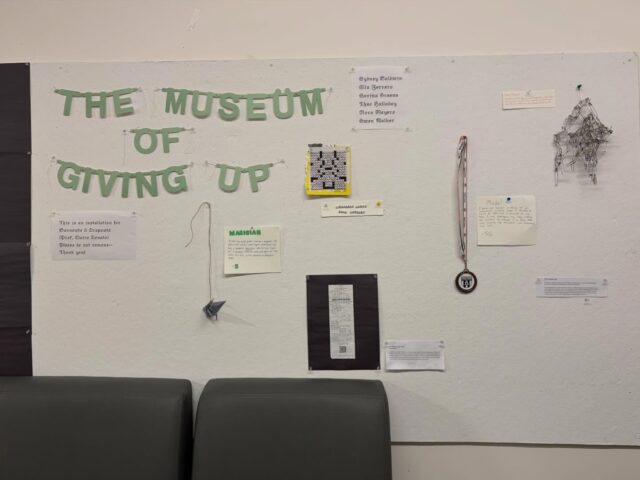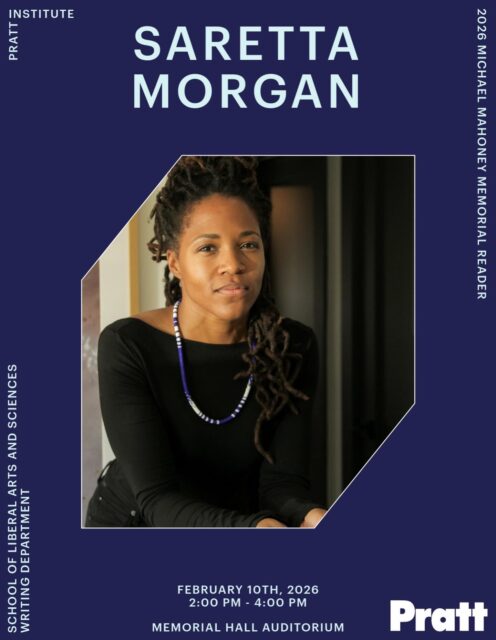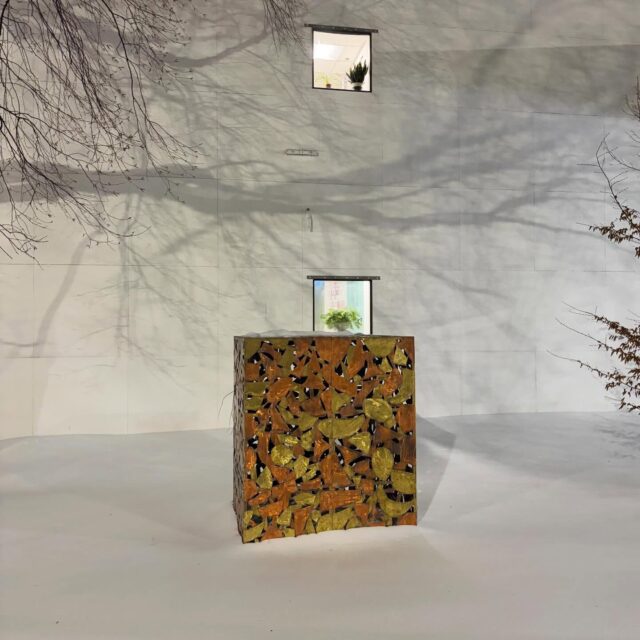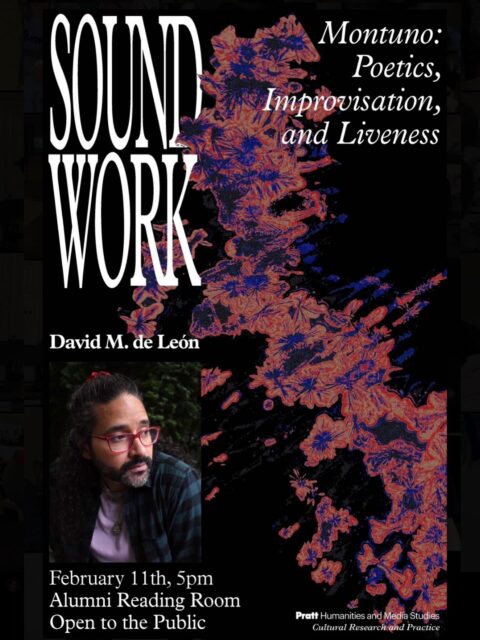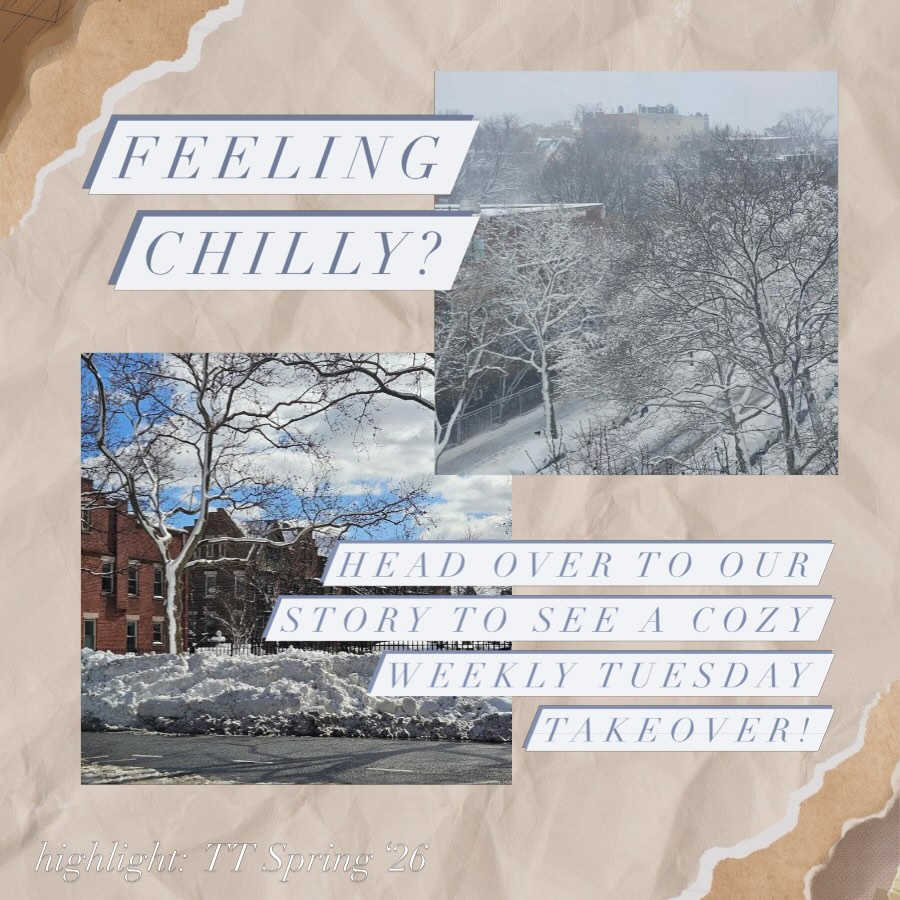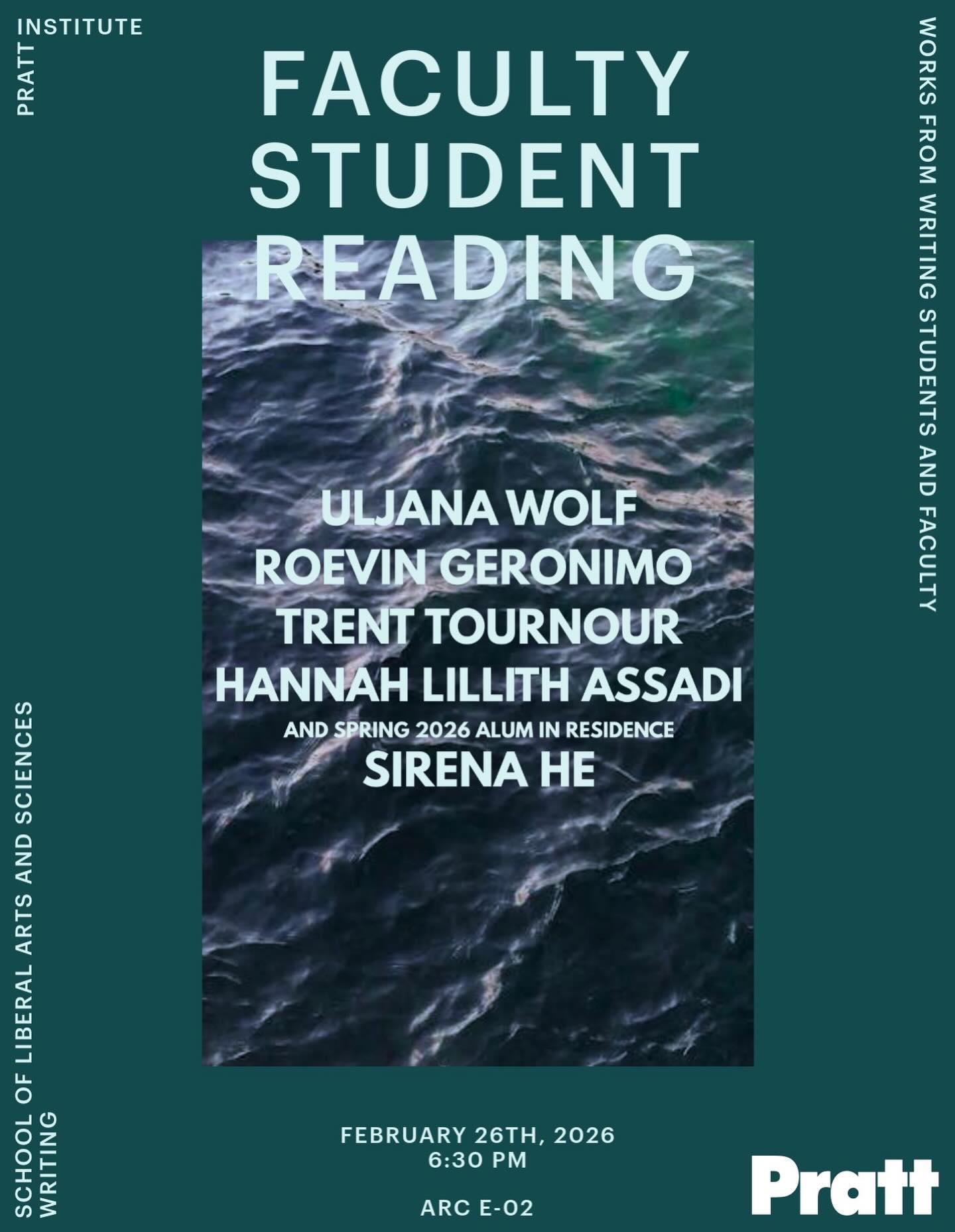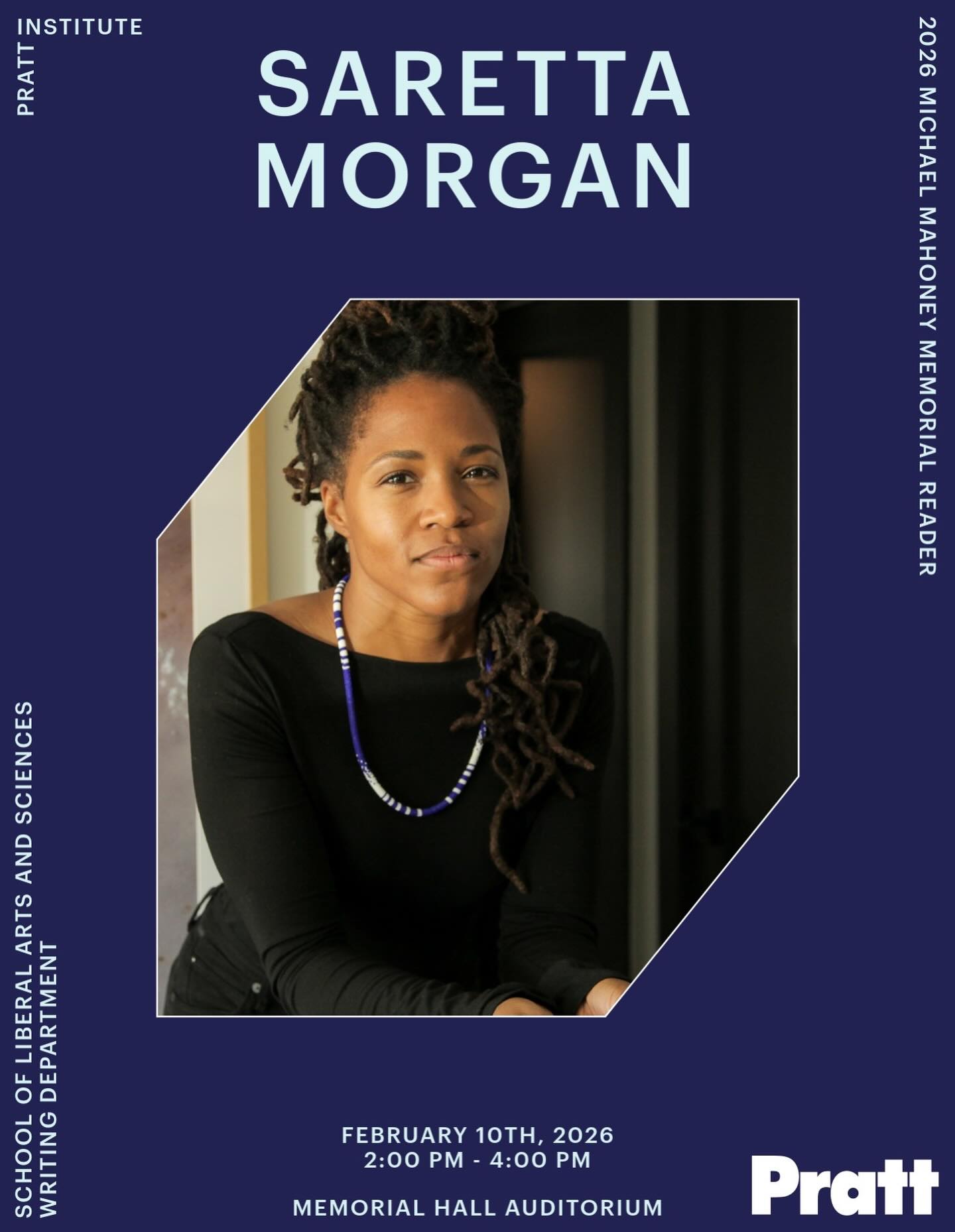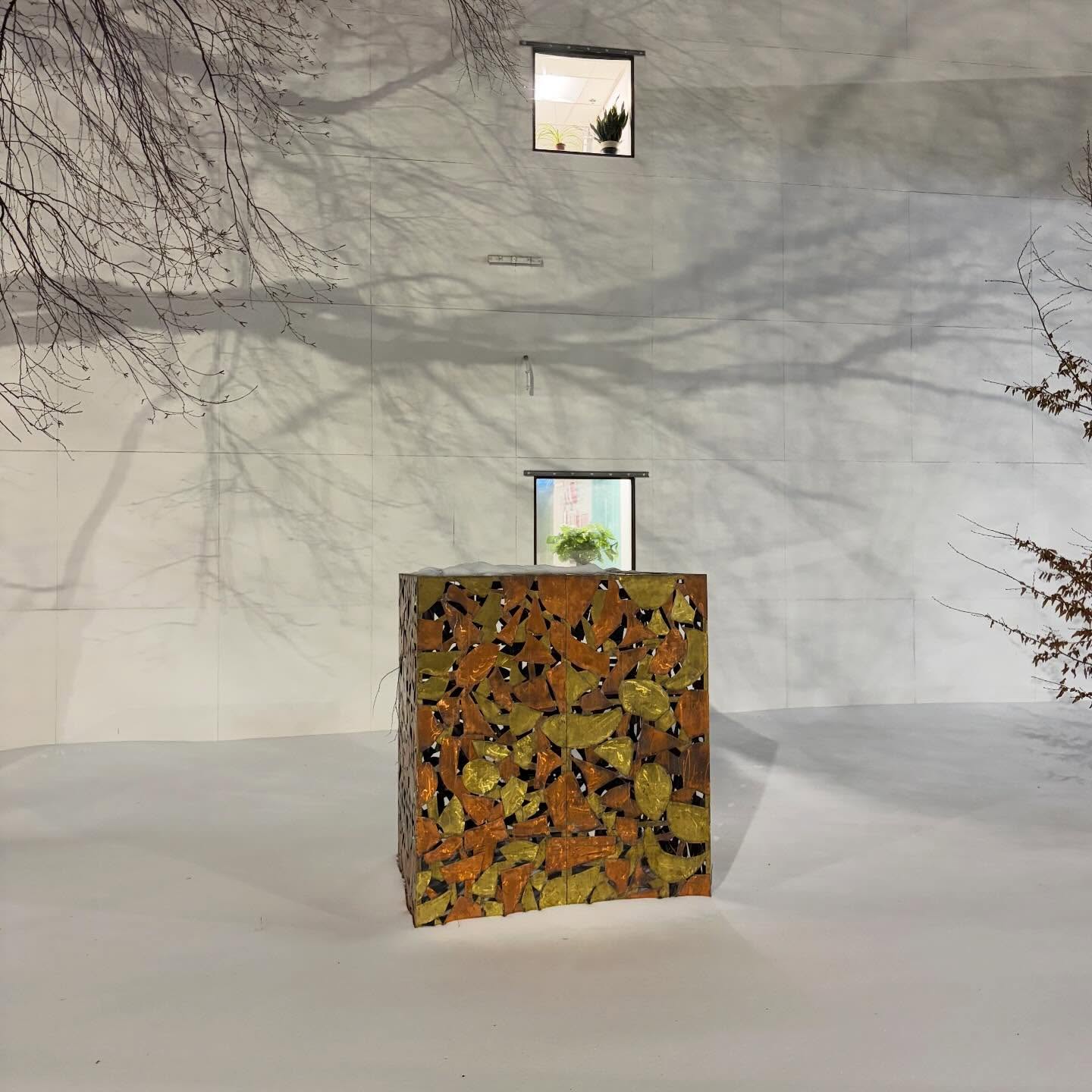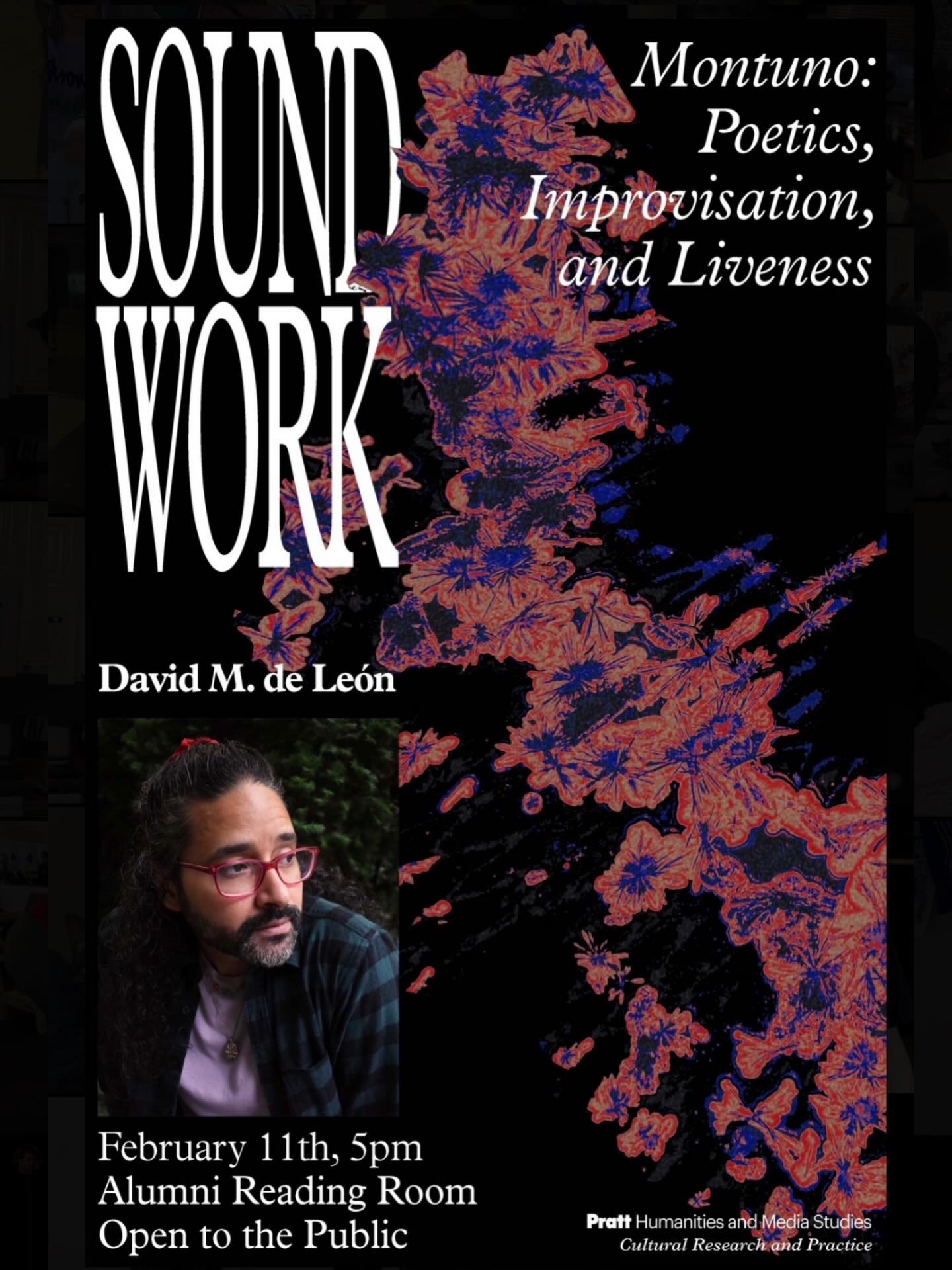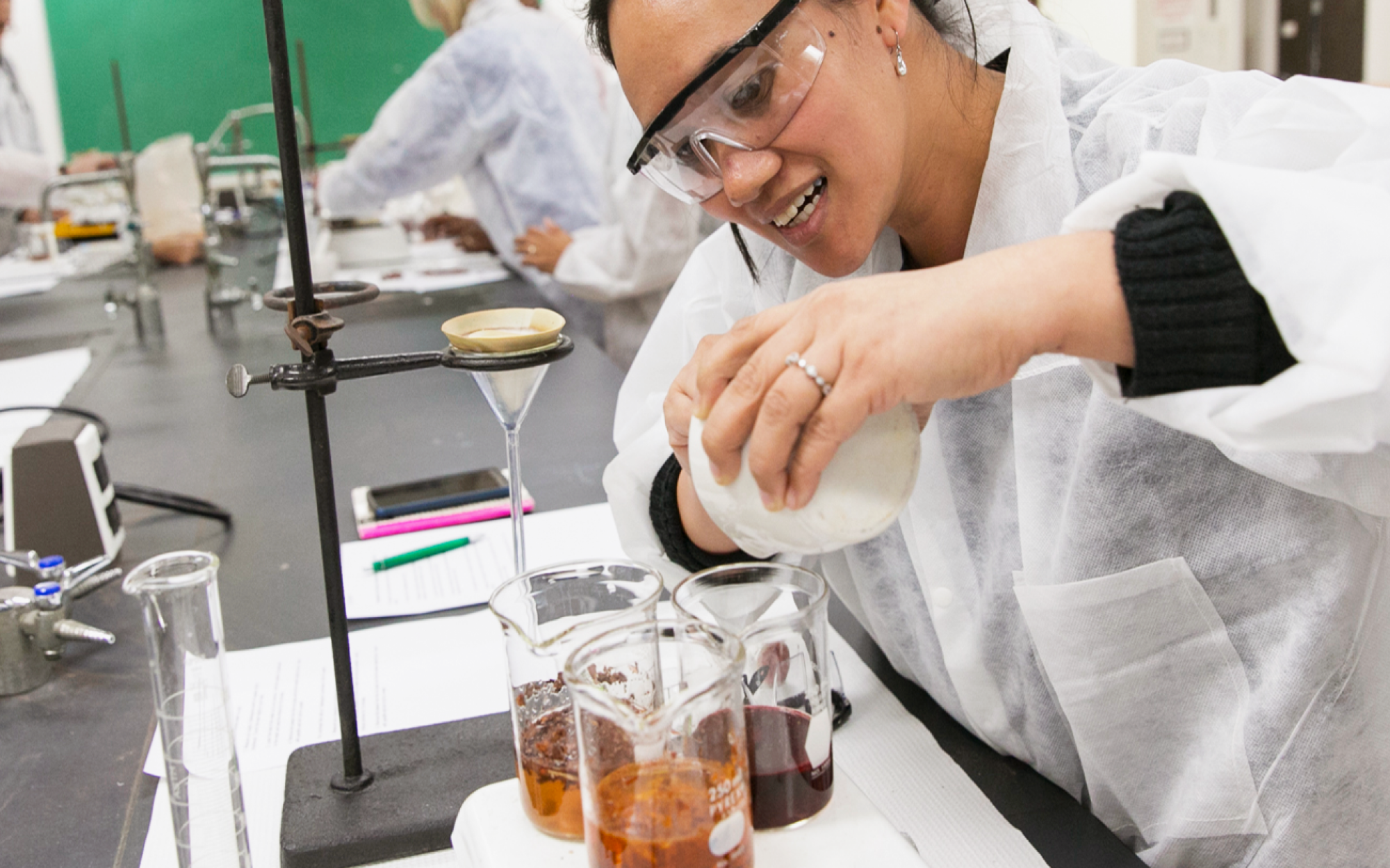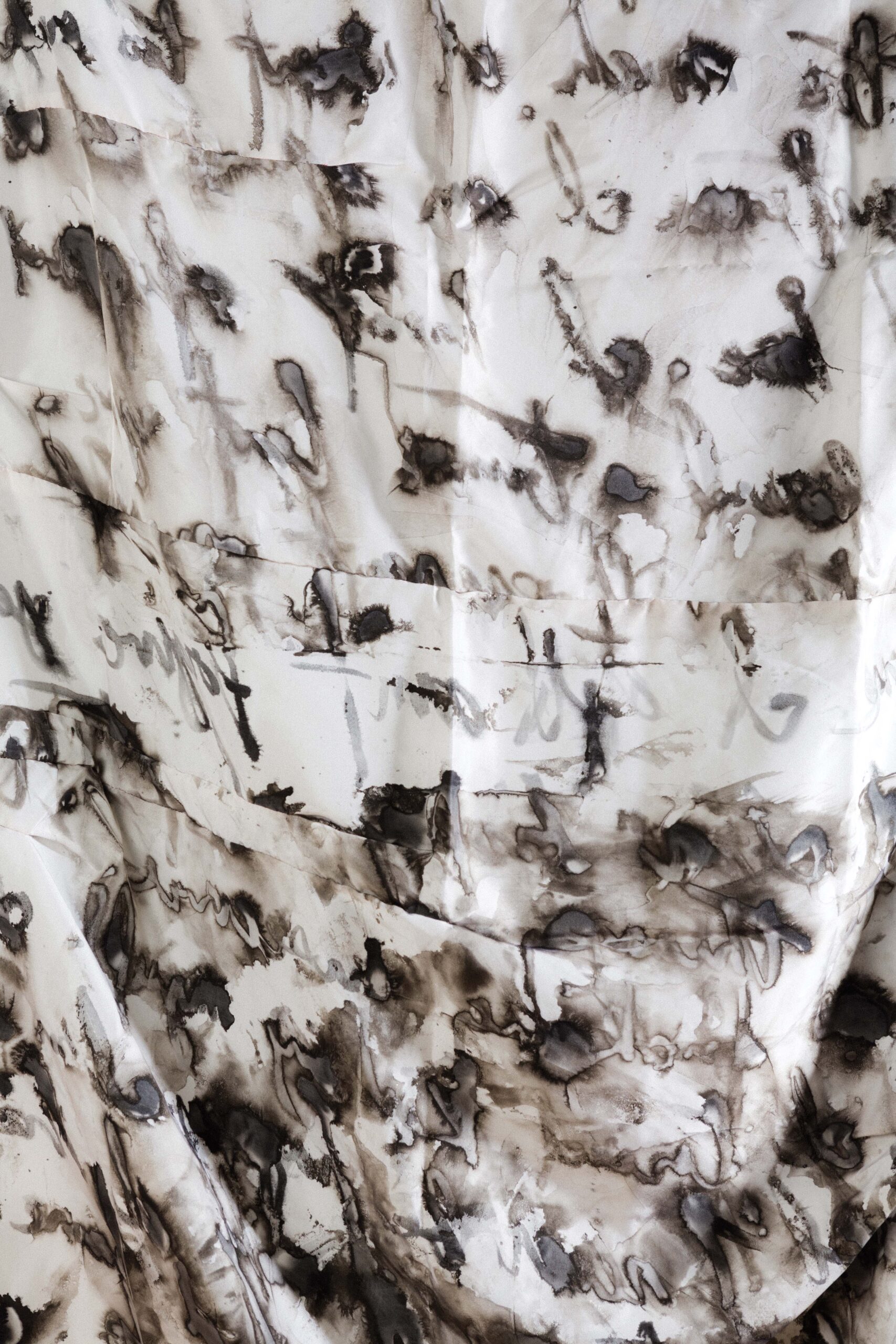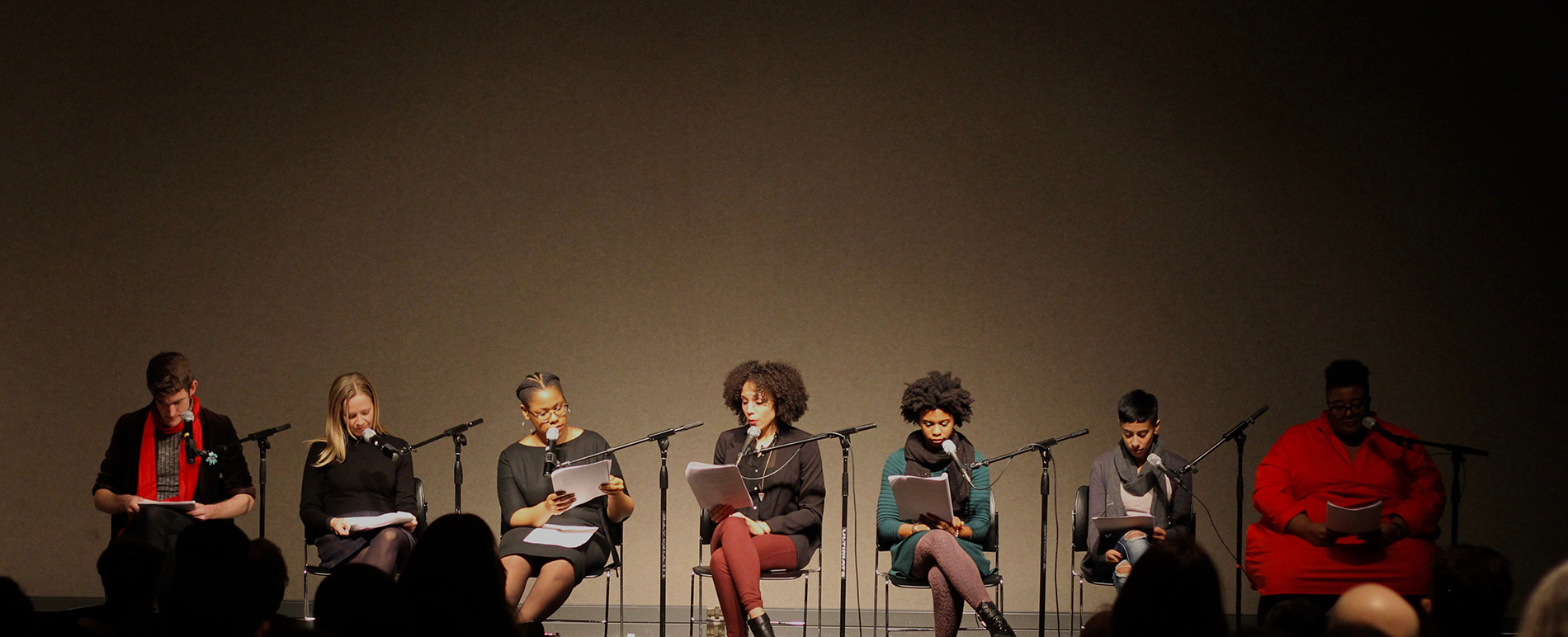
Prospective candidates: RSVP for the MFA in Writing’s Fall 2025 informational session!
Here is the date and corresponding registration link:
Monday, December 8 at 5:00pm ET – Register here
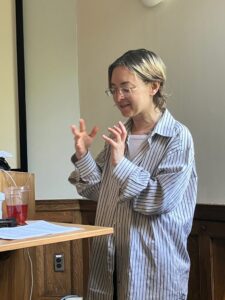
Personalized Support to Develop Your Writing
Our tight-knit writing community values a plurality of voices and approaches to writing, both on and off the page. In our program, you’ll develop your writing practice through weekly Writing Studio sessions with peers, faculty, and guest artists; unique electives; guided fieldwork residencies; and faculty mentorships.
Pratt’s MFA in Writing can be completed in four semesters of full-time study. We fund our students equally: for more information about student funding resources, please contact the program.
A Transdisciplinary, Experimental, and Expansive Program Within an Art School
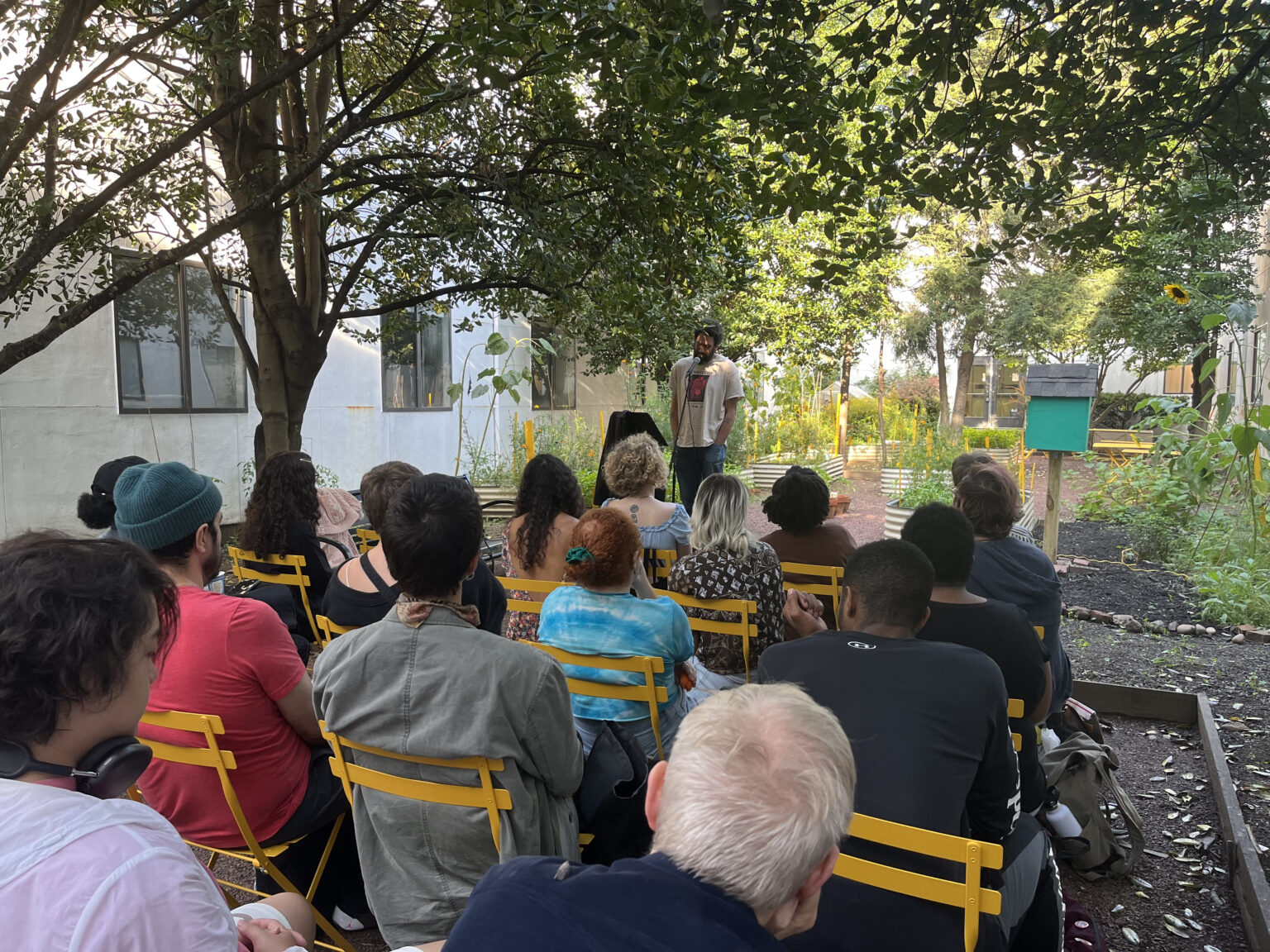
Our program supports your development of a writing process that takes into account the material and technological aspects of writing, the human body that produces it, and the larger social, sexual, historical, economic, racial, and cultural contexts in which and through which all imaginative writing takes place.
Participate in small-size seminars with our faculty in subjects such as multilingualisms, small press, ecopoetics, and experimental prose. Take advantage of space in our curriculum to pursue courses in Pratt’s celebrated Art, Design, and Media Studies programs, or design your own custom independent study. Browse the full list of Writing MFA elective courses.
Writers Supporting Writers: Building a Collaborative Practice
Pratt’s Brooklyn campus-based writing facilities, designed with significant student input, include dedicated 24/7 work spaces where students can develop projects together as well as find quiet nooks for writing and reflection. The program’s faculty serve as models for collaborative practice as well, from co-leading the weekly Writing Studio to founding literary magazines and alternative presses that support other writers.
Socially Engaged Practice: Fieldwork Residencies
Explore writing’s impact with an organization you believe in. Through the fieldwork course sequence, you’ll study social practice methodologies and carry out a self-designed creative residency in collaboration with a literary institution, community organization, archive, or activist group of your choice. Past fieldwork sites include Wendy’s Subway, Nuyorican Poets Café, and The Poetry Project.
Become Part of a Publishing Collective
Each year, a self-selecting group of students collaborates to solicit, edit, design, and publish chapbooks. These publications are celebrated in a culminating event and are also distributed at local Brooklyn bookstores.
Pursue Independent Projects—with Funding
MFA Writing students frequently pursue individual research projects supported by Pratt’s Graduate Student Engagement Fund (GSEF). With GSEF funding, our students have mounted gallery exhibitions, shot films, and traveled internationally to develop research archives for their creative projects.
Work with a Mentor
Through our Mentored Studies sequence, you and a faculty mentor will engage in regular, deep conversations throughout your time in the program. Your mentor will support the expansion of your writing practice and facilitate your thesis project. Past mentors include Anna Moschovakis, Sharifa Rhodes-Pitts, Mirene Arsanios, Ellery Washington, and James Hannaham.
Our Faculty
Distinguished and daring writers, artists, researchers, translators, and editors, they bring diverse views, methods, and perspectives to creating the environment in which you’ll study and create. See all Writing faculty and administrators.
-
Christian Hawkey
Professor
-
Christopher Perez
Visiting Professor
-
Sharifa Rhodes-Pitts
Associate Professor
-
Laura Elrick
Associate Professor
-
Anna Moschovakis
Adjunct Associate Professor – CCE
-
James Hannaham
Professor
-
Youmna Chlala
Professor
-
Mirene Arsanios
Adjunct Assistant Professor
-
Rachel Levitsky
Professor
-
Ellery Washington
Associate Professor
-
Hannah Assadi
Visiting Instructor
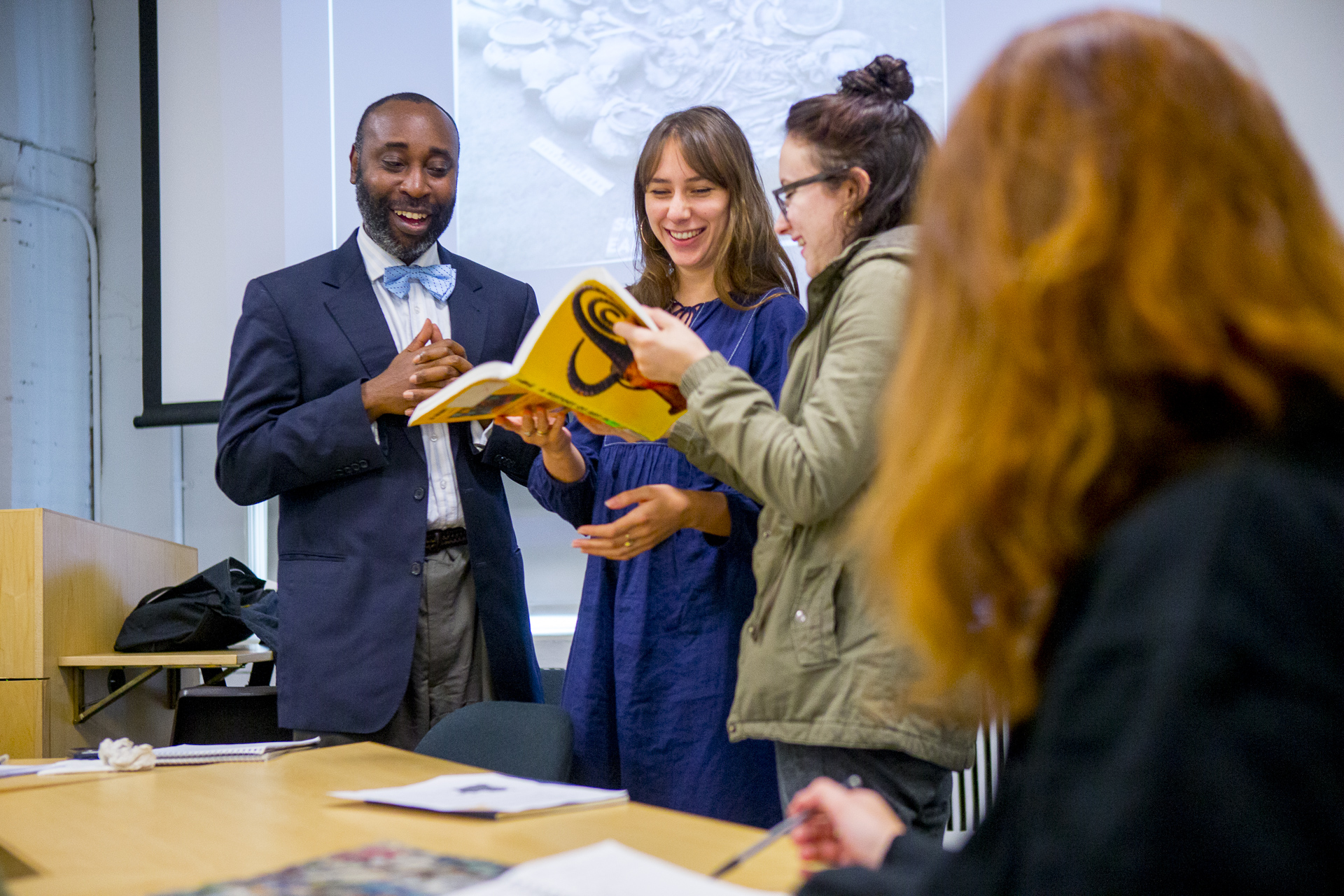
After Graduation
The program sets graduates up for success in a variety of fields. Our graduates publish widely and have been awarded prestigious literary prizes. Their innovative work addresses critical social and political questions that reimagine our world.
Where They’ve Worked
- Nuyorican Poets Café
- New Orleans Public Defender’s Office
- Litmus Press
- Futurepoem Books
- School for Poetic Computation
- Pratt Institute
- JustMedia
- Boar Hair Books and Oreades Press
- The Octavia Project
- Code Read
- Nightboat Books and Graywolf Press
Publications and Awards
- Andrew Riad’s Martyred, Mother: A Futurenarrative (winner of Radix Printing and Publishing Cooperative’s 2025 Megaphone Prize)
- Alisha Mascarenhas, author of A Catalogue of Risk (Wendy’s Subway, 2024), winner of the Carlyn Bush Award
- Stephon Lawrence, author of u know how much i hate being in social situations (Futurepoem, 2023)
- Hamid Roslan, author of parsetreeforestfire (Ethos Books, 2019), shortlisted for the Singapore Literature Prize for Poetry 2020
- Mahogany L. Browne, author of Woke Baby (2018, Macmillan), Chrome Valley: Poems (National Geographic Books, 2023), Vinyl Moon (Penguin, 2022), and others
- a.Monti, author of Mycelial Person (Vegetarian Alcoholic Press, 2021)
- Jive Poetic, showcased on TVONE’s Lexus Verses and Flow, PBS NewsHour, and BET
- Irene Lee, co-author of Six Endings and Some Beginnings (Ordeas Press, 2022)
Success Stories
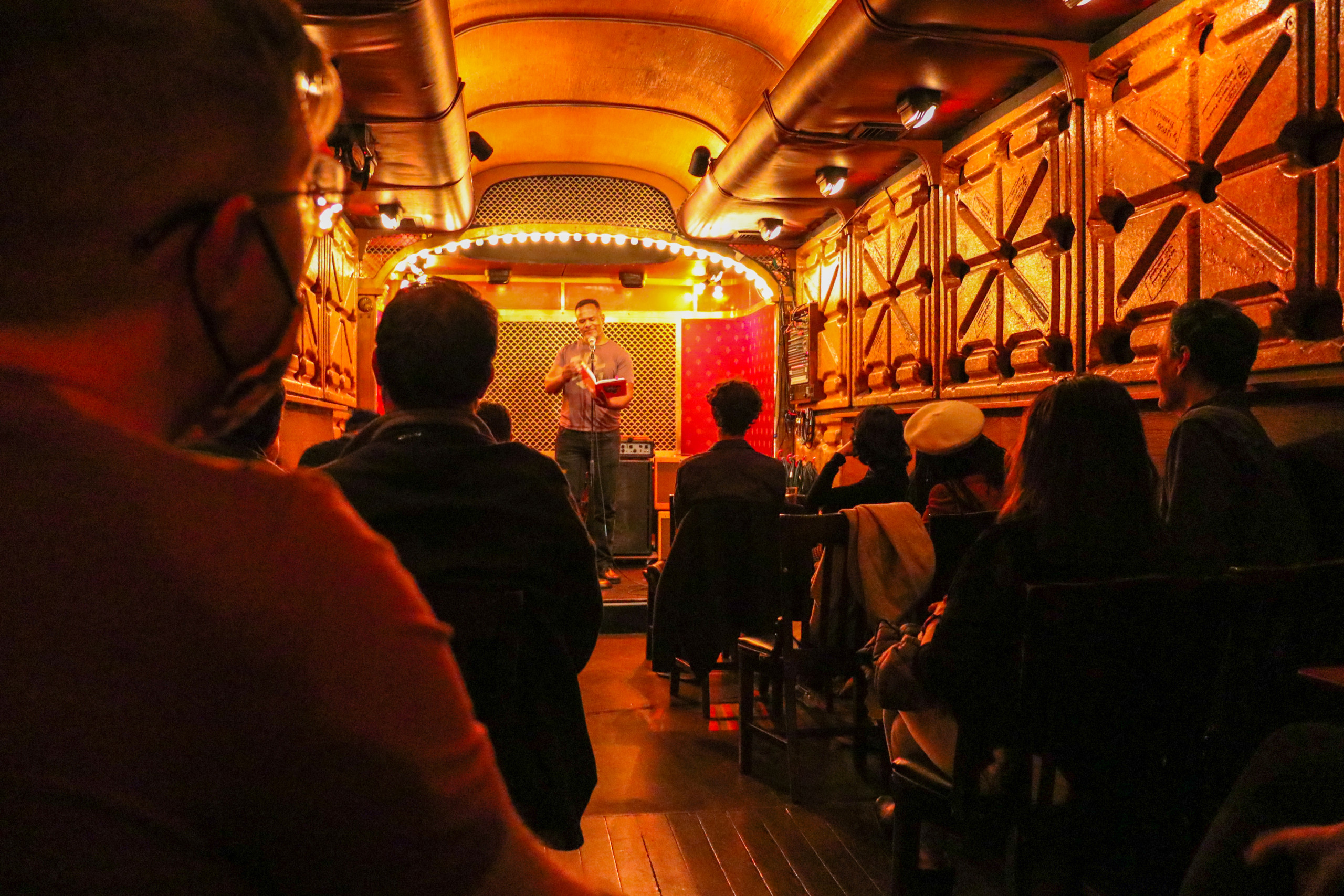
Literary City
Prattfolio Story
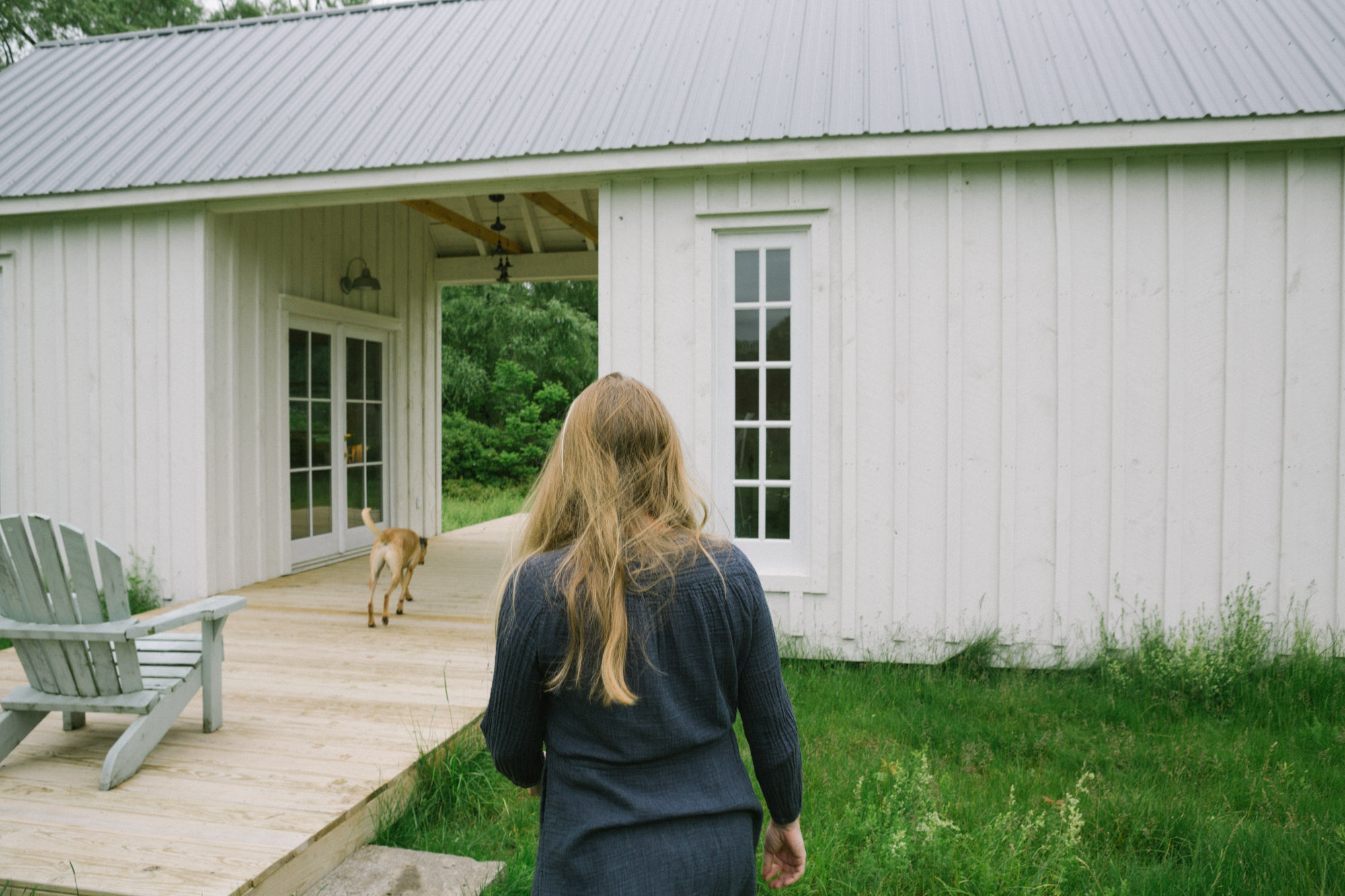
Revisited: From the Studio of Writing Professor Samantha Hunt
Prattfolio Story
Dedicated Career Support for Life
Your career journey doesn’t end at graduation. Our departmental alumni coordinator and Pratt’s Center for Career and Professional Development offer lifelong support, including one-to-one strategy sessions and reviews of résumés, cover letters, and websites.
From the Catalog
Ready for More?
| HERE’S HOW TO APPLY | Graduate Studies at Pratt | OUR CAMPUS & BEYOND |
|---|---|---|
| Join us at Pratt. Learn more about admissions requirements, plan your visit, talk to a counselor, and start your application. Take the next step. | Whether your goal is to advance your career, pivot to a new field, or explore your craft or groundbreaking research, our 33 graduate programs provide the rigor and support to achieve your vision. Explore our graduate programs in architecture, fine arts, design, information studies, and the liberal arts and sciences. Learn More. | You’ll find yourself at home at Pratt. Learn more about our residence halls, student organizations, athletics, gallery exhibitions, events, the amazing City of New York and our Brooklyn neighborhood communities. Check us out. |
